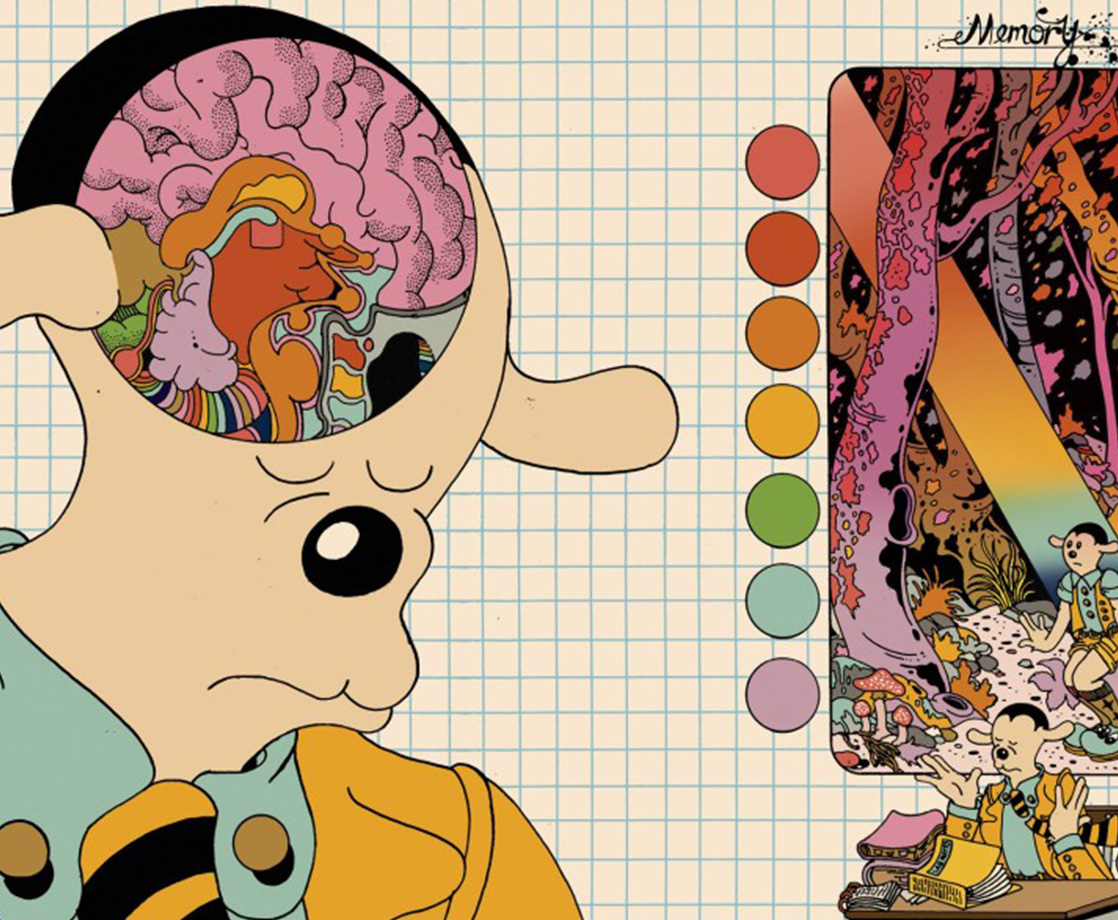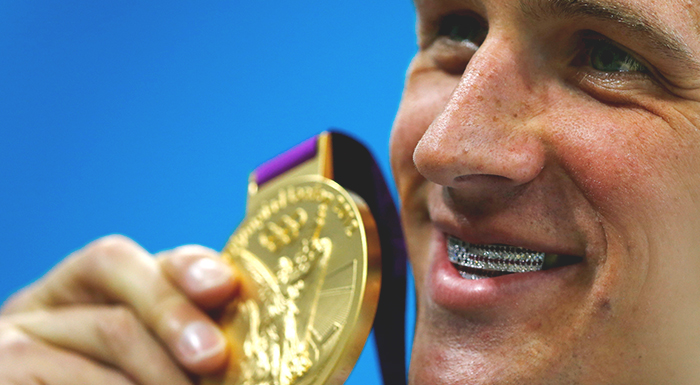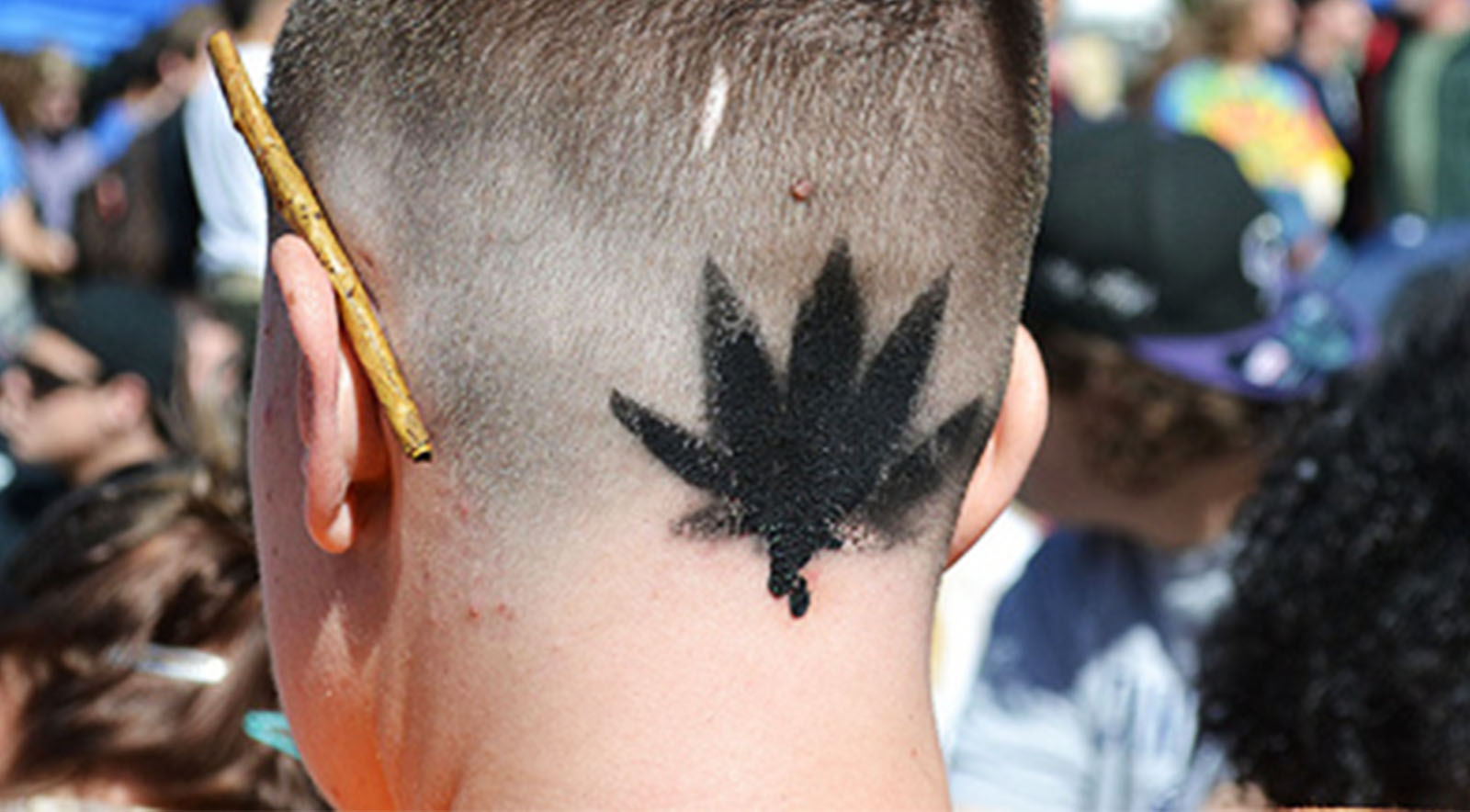Lead image via Brian Blomerth’s “Bicycle Day”
Two new studies suggest that blowing open the mind by microdosing psychedelics like magic mushrooms and LSD isn’t just an urban myth.
Microdosing is when someone takes incredibly small doses of a psychoactive substance, tiny enough not to hallucinate or feel intoxicated, but just enough to get some of the substance’s beneficial effects. Generally, a microdose falls between 5 to 10 percent of the so-called standard “recreational dose,” though there’s no scientific consensus on that microdose range.
What’s with the hype behind microdosing? Basically, a microdoser supposedly gets a massive cognitive boost while remaining totally functional. Silicon Valley whiz kids reportedly microdose psychedelics to help enhance their brain power. And according to the legend, Francis Crick, one of the co-discoverers of DNA’s structure, once claimed that he envisioned DNA’s double-helix shape while microdosing LSD. (That’s not entirely true, but it’s a cool story, bro.)
Currently, researchers are exploring microdosing for therapeutic purposes. One of the latest studies, published this month in the Harm Reduction Journal, used self-reports to determine the highs and lows of microdosing.
The Harm Reduction study looked at 278 individuals (appropriately recruited from Reddit) who claimed they had microdosed psilocybin (one of the primary psychoactive components of magic mushrooms), LSD, or a combination of the two.
Here’s what the study found. Of the 278 participants, 93 percent ranked “improved mood” as microdosing’s most important benefit. Just under half of all respondents reported that microdosing improvements on “meditative practice” and exercise routines were the most important, while 28 percent said getting better sleep ranked highest. Respondents also reported that they consumed less caffeine, alcohol, tobacco, and cannabis (gasp!) after microdosing.
The Harm Reduction findings further broke down specific microdosing outcomes by categories. Respondents were asked to pick three primary benefits and three major downsides of microdosing. Here’s how Newsweek explained it:
“Of the total, 26.6 percent said microdosing improved their mood, which included lowering symptoms of depression; 14.8 percent said it helped them to focus; 12.9 percent said it boosted their memory, and 11.3 percent said it helped their self-efficacy. A further 10.5 percent claimed it improved energy levels. Fewer than 10 percent said microdosing had cognitive benefits, social benefits, reduced anxiety, or provided physiological enhancement.”
While those numbers may not look impressive on the surface, keep in mind that respondents could only report three positive outcomes and three negative ones. Then they subjectively ranked the importance of those outcomes, which is how we get a 90-percent endorsement for “improved mood” from these same respondents, even though only 26 percent listed “improved mood” as a favorable outcome.
“Microdosing could provide a possible alternative to SSRIs [selective serotonin reuptake inhibitors, a class of drugs commonly used to fight depression], which are great but don’t work for everyone,” PhD student Thomas Anderson, one of the study’s co-authors, told Newsweek. “Microdosing won’t work for everyone, either, but it could provide a possible alternative to other treatment pathways.”
A second microdosing paper, this one published in the Journal of Psychopharmacology, was arguably misrepresented by media outlets. Newsweek included it as an example of science’s “thin evidence” for microdosing’s efficacy. The nerd blog Science Daily ran the headline, “Science of microdosing psychedelics remains patchy and anecdotal, say researchers” while Medical News Today went with, “Microdosing psychedelics: Does the evidence live up to the hype?” Psychology Today wrote, “A New Review of Psilocybin Microdosing Cools the Hype.”
First off, the Psychopharmacology paper wasn’t an experimental or survey study. It was a review paper, meaning the authors looked at all the available research on microdosing psilocybin, psilocin, and LSD; compiled the findings; then tried to make sense of what scientists currently know about microdosing. Second, this paper did, in fact, suspect that small doses of psychedelics appear to have psychoactive effects, based on what’s already been researched.
For example, the Psychopharmacology authors cited one study that found microdosing psychedelics “decreased depression and stress, decreased mind wandering, increased absorption and increased neuroticism.” They added, “Interestingly, these variables were not those that participants most expected to change, suggesting that long-term changes may be due to biological changes and not only expectations.” That last sentence can be summed up as, These weren’t placebo effects.
To be fair, the Psychopharmacology paper did conclude that much of what we know about microdosing is anecdotal, largely due to federal barriers that block psychedelic research.
“Unfortunately, due to their long history of anecdotal use in recreational settings, none of the psychedelics has ever followed the conventional drug research and development path expected by contemporary standards,” they wrote. They added that more placebo-controlled clinical trials are needed to confirm whether microdosing actually works.
So cap that on your bowl of DMT and smoke it, drug warriors.
Follow Randy Robinson on Twitter











